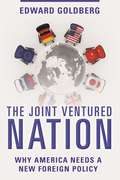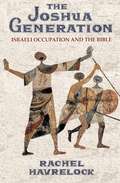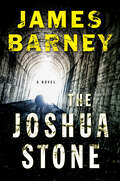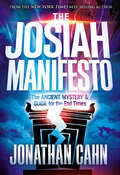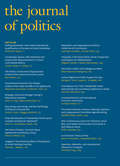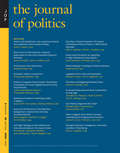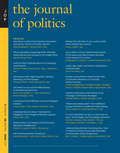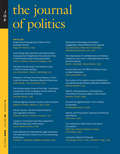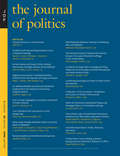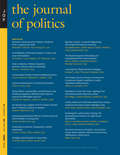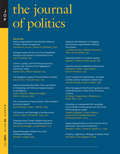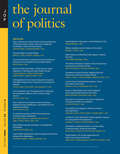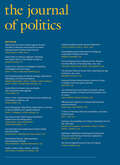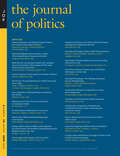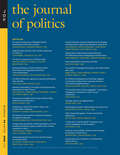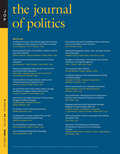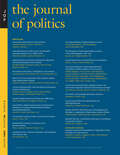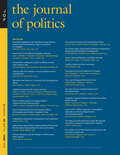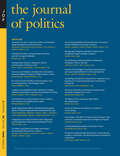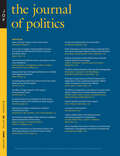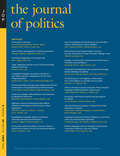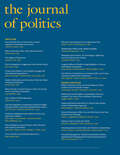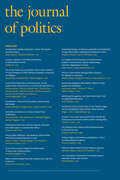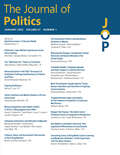- Table View
- List View
The Joint Ventured Nation: Why America Needs a New Foreign Policy
by Edward GoldbergMoving America from the Troubled Superpower to the Indispensable PartnerWhat a ride the world has been on over the last thirty years: the fall of the Berlin Wall, China's reemergence as a major power, the wishful creation of the BRICS, technological innovations, 9/11, conflicts in Iraq, Afghanistan, and Syria, terrorism, the market crash of 2008, the Arab Spring, the Eurozone crisis, America's reemergence as an energy giant, and the rebirth of czarist Russia. The most important change, though-and the key to America's future-is globalization.Globalization has made America less independent. Our fate is now interconnected to other major industrial countries, yet our foreign policy has not adapted to this reality. In today's world, the term "ally" is becoming rapidly irrelevant. The United Kingdom is an old ally of America, but as a result of economic codependencies, China is now much more important to the United States. Instead of thinking in terms of allies, think of US policy regarding other twenty-first-century nations as a set of concurrent joint venture agreements.In The Joint Ventured Nation, author Edward Goldberg argues that American foreign policy is too focused on a world that no longer exists, one in which political power is measured by military strength or fervent ideology. He details how our fate is now intertwined with our economic partners, and looks at how we should deal with states such as Russia and the various Middle Eastern nations that refuse to join the globalized world. Most importantly, he shows how America can remain first among equals in a joint ventured world.
The Joshua Generation: Israeli Occupation and the Bible
by Rachel HavrelockHow a controversial biblical tale of conquest and genocide became a founding story of modern IsraelNo biblical text has been more central to the politics of modern Israel than the book of Joshua. Named after a military leader who became the successor to Moses, it depicts the march of the ancient Israelites into Canaan, describing how they subjugated and massacred the indigenous peoples. The Joshua Generation examines the book's centrality to the Israeli occupation today, revealing why nationalist longing and social reality are tragically out of sync in the Promised Land.Though the book of Joshua was largely ignored and reviled by diaspora Jews, the leaders of modern Israel have invoked it to promote national cohesion. Critics of occupation, meanwhile, have denounced it as a book that celebrates genocide. Rachel Havrelock looks at the composition of Joshua, showing how it reflected the fractious nature of ancient Israelite society and a desire to unify the populace under a strong monarchy. She describes how David Ben-Gurion, Israel's first prime minister, convened a study group at his home in the late 1950s, where generals, politicians, and professors reformulated the story of Israel's founding in the language of Joshua. Havrelock traces how Ben-Gurion used a brutal tale of conquest to unite an immigrant population of Jews of different ethnicities and backgrounds, casting modern Israelis and Palestinians as latter-day Israelites and Canaanites.Providing an alternative reading of Joshua, The Joshua Generation finds evidence of a decentralized society composed of tribes, clans, and woman-run households, one with relevance to today when diverse peoples share the dwindling resources of a scarred land.
The Joshua Stone: A Novel
by James BarneySome secrets belong to the past. Others refuse to stay there . . .In 1959, in an underground laboratory in a remote region of West Virginia, a secret government experiment went terribly awry. Half a dozen scientists mysteriously disappeared, and all subsequent efforts to rescue them failed. In desperation, President Eisenhower ordered the lab sealed shut and all records of its existence destroyed. Now, fifty-four years later, something from the lab has emerged.When mysterious events begin occurring along the New River Valley in West Virginia, government agents Mike Califano and Ana Thorne are sent to investigate. What they discover will shake the foundations of science and religion and put both agents in the crosshairs of a deadly, worldwide conspiracy. A powerful and mysterious force has been unleashed, and it's about to fall into the wrong hands. To prevent a global catastrophe, Califano and Thorne must work together to solve a biblical mystery that has confounded scholars for centuries. And they must do so quickly, before time runs out . . . forever.
The Josiah Manifesto: The Ancient Mystery & Guide for the End Times
by Jonathan CahnIs there an answer, a guide, a blueprint that reveals what you need to know to survive, to stand, and to prevail in view of what&’s coming in the days ahead? Has it been revealed to us in the appearing of a sign from an ancient mystery playing out in modern times before our eyes?After seven explosive New York Times Bestsellers, Jonathan Cahn now releases his newest blockbuster - THE JOSIAH MANIFESTO - The Ancient Mystery & Guide for the End-Times - as mind-blowing as all his bestsellers - and with something different: the Blueprint, the Answer - the Manifesto!The Josiah Manifesto opens up the stunning mysteries that lie behind the dramatic events of recent times that have changed our world – and the message hidden within them with regard to what lies ahead. Could a 3000 year-old calendar of appointed days provide the secret to the most dramatic year of our lives – even ordaining a plague, a national lockdown, days of fire, and the changing of the Supreme Court? Could an ancient temple, an ominous prayer, and a mysterious template lie behind the event that overtook Capitol Hill and shook the nation? Could an enigmatic ancient king reveal the secret of a modern American president? Could an ordinance given in the middle of a desert 3000 years ago have determined the rise and fall of a Latin American dictator?Could an ancient array of mysteries from the Middle East have converged on Washington DC in a single hour to change the history of America? What does the future hold? Is America heading for calamity? Is the world? Is there hope? Have we been given a last chance? Is it possible to change history? And is there a blueprint for what you need to know to survive and stand with regard to what is yet to come - even a guide to the &‘end-times&’? The Josiah Manifesto will take you on a prophetic journey from a Caribbean island to the Washington D.C. to the ancient Valley of Hinnom to the Supreme Court to a desert mountain to an ancient middle eastern temple to the gates of America - to uncover an ancient puzzle that lies behind the events that have altered our lives - Including … The Island of Mysteries – The House of Fallen Children – The Heavenly Court – The Child of the Nile – The Agents of Heaven on Earth – The Stranger in the Living Room – The Mystery of Days … And Much, Much More! And could these mysteries give you the key to what you need to know to prevail in the days to come – even a guide to the end times? It will all be revealed in THE JOSIAH MANIFESTO – The Ancient Mystery & Guide for the End-Times!The book you can&’t afford not to read!
The Journal of Politics, volume 82 number 1 (January 2020)
by Journal of PoliticsThis is volume 82 issue 1 of The Journal of Politics. Established in 1939 and published for the Southern Political Science Association, The Journal of Politics is a leading general-interest journal of political science and the oldest regional political science journal in the United States. The scholarship published in The Journal of Politics is theoretically innovative and methodologically diverse, and comprises a blend of the various intellectual approaches that make up the discipline. The Journal of Politics features balanced treatments of research from scholars around the world, in all subfields of political science including American politics, comparative politics, international relations, political theory, and political methodology.
The Journal of Politics, volume 82 number 2 (April 2020)
by Journal of PoliticsThis is volume 82 issue 2 of The Journal of Politics. Established in 1939 and published for the Southern Political Science Association, The Journal of Politics is a leading general-interest journal of political science and the oldest regional political science journal in the United States. The scholarship published in The Journal of Politics is theoretically innovative and methodologically diverse, and comprises a blend of the various intellectual approaches that make up the discipline. The Journal of Politics features balanced treatments of research from scholars around the world, in all subfields of political science including American politics, comparative politics, international relations, political theory, and political methodology.
The Journal of Politics, volume 82 number 3 (July 2020)
by Journal of PoliticsThis is volume 82 issue 3 of The Journal of Politics. Established in 1939 and published for the Southern Political Science Association, The Journal of Politics is a leading general-interest journal of political science and the oldest regional political science journal in the United States. The scholarship published in The Journal of Politics is theoretically innovative and methodologically diverse, and comprises a blend of the various intellectual approaches that make up the discipline. The Journal of Politics features balanced treatments of research from scholars around the world, in all subfields of political science including American politics, comparative politics, international relations, political theory, and political methodology.
The Journal of Politics, volume 82 number 4 (October 2020)
by Journal of PoliticsThis is volume 82 issue 4 of The Journal of Politics. Established in 1939 and published for the Southern Political Science Association, The Journal of Politics is a leading general-interest journal of political science and the oldest regional political science journal in the United States. The scholarship published in The Journal of Politics is theoretically innovative and methodologically diverse, and comprises a blend of the various intellectual approaches that make up the discipline. The Journal of Politics features balanced treatments of research from scholars around the world, in all subfields of political science including American politics, comparative politics, international relations, political theory, and political methodology.
The Journal of Politics, volume 83 number 1 (January 2021)
by Journal of PoliticsThis is volume 83 issue 1 of The Journal of Politics. Established in 1939 and published for the Southern Political Science Association, The Journal of Politics is a leading general-interest journal of political science and the oldest regional political science journal in the United States. The scholarship published in The Journal of Politics is theoretically innovative and methodologically diverse, and comprises a blend of the various intellectual approaches that make up the discipline. The Journal of Politics features balanced treatments of research from scholars around the world, in all subfields of political science including American politics, comparative politics, international relations, political theory, and political methodology.
The Journal of Politics, volume 83 number 2 (April 2021)
by The Journal of PoliticsThis is volume 83 issue 2 of The Journal of Politics. Established in 1939 and published for the Southern Political Science Association, The Journal of Politics is a leading general-interest journal of political science and the oldest regional political science journal in the United States. The scholarship published in The Journal of Politics is theoretically innovative and methodologically diverse, and comprises a blend of the various intellectual approaches that make up the discipline. The Journal of Politics features balanced treatments of research from scholars around the world, in all subfields of political science including American politics, comparative politics, international relations, political theory, and political methodology.
The Journal of Politics, volume 83 number 3 (July 2021)
by The Journal of PoliticsThis is volume 83 issue 3 of The Journal of Politics. Established in 1939 and published for the Southern Political Science Association, The Journal of Politics is a leading general-interest journal of political science and the oldest regional political science journal in the United States. The scholarship published in The Journal of Politics is theoretically innovative and methodologically diverse, and comprises a blend of the various intellectual approaches that make up the discipline. The Journal of Politics features balanced treatments of research from scholars around the world, in all subfields of political science including American politics, comparative politics, international relations, political theory, and political methodology.
The Journal of Politics, volume 83 number 4 (October 2021)
by The Journal of PoliticsThis is volume 83 issue 4 of The Journal of Politics. Established in 1939 and published for the Southern Political Science Association, The Journal of Politics is a leading general-interest journal of political science and the oldest regional political science journal in the United States. The scholarship published in The Journal of Politics is theoretically innovative and methodologically diverse, and comprises a blend of the various intellectual approaches that make up the discipline. The Journal of Politics features balanced treatments of research from scholars around the world, in all subfields of political science including American politics, comparative politics, international relations, political theory, and political methodology.
The Journal of Politics, volume 84 number 1 (January 2022)
by The Journal of PoliticsThis is volume 84 issue 1 of The Journal of Politics. Established in 1939 and published for the Southern Political Science Association, The Journal of Politics is a leading general-interest journal of political science and the oldest regional political science journal in the United States. The scholarship published in The Journal of Politics is theoretically innovative and methodologically diverse, and comprises a blend of the various intellectual approaches that make up the discipline. The Journal of Politics features balanced treatments of research from scholars around the world, in all subfields of political science including American politics, comparative politics, international relations, political theory, and political methodology.
The Journal of Politics, volume 84 number 2 (April 2022)
by The Journal of PoliticsThis is volume 84 issue 2 of The Journal of Politics. Established in 1939 and published for the Southern Political Science Association, The Journal of Politics is a leading general-interest journal of political science and the oldest regional political science journal in the United States. The scholarship published in The Journal of Politics is theoretically innovative and methodologically diverse, and comprises a blend of the various intellectual approaches that make up the discipline. The Journal of Politics features balanced treatments of research from scholars around the world, in all subfields of political science including American politics, comparative politics, international relations, political theory, and political methodology.
The Journal of Politics, volume 84 number 3 (July 2022)
by The Journal of PoliticsThis is volume 84 issue 3 of The Journal of Politics. Established in 1939 and published for the Southern Political Science Association, The Journal of Politics is a leading general-interest journal of political science and the oldest regional political science journal in the United States. The scholarship published in The Journal of Politics is theoretically innovative and methodologically diverse, and comprises a blend of the various intellectual approaches that make up the discipline. The Journal of Politics features balanced treatments of research from scholars around the world, in all subfields of political science including American politics, comparative politics, international relations, political theory, and political methodology.
The Journal of Politics, volume 84 number 4 (October 2022)
by The Journal of PoliticsThis is volume 84 issue 4 of The Journal of Politics. Established in 1939 and published for the Southern Political Science Association, The Journal of Politics is a leading general-interest journal of political science and the oldest regional political science journal in the United States. The scholarship published in The Journal of Politics is theoretically innovative and methodologically diverse, and comprises a blend of the various intellectual approaches that make up the discipline. The Journal of Politics features balanced treatments of research from scholars around the world, in all subfields of political science including American politics, comparative politics, international relations, political theory, and political methodology.
The Journal of Politics, volume 85 number 1 (January 2023)
by The Journal of PoliticsThis is volume 85 issue 1 of The Journal of Politics. Established in 1939 and published for the Southern Political Science Association, The Journal of Politics is a leading general-interest journal of political science and the oldest regional political science journal in the United States. The scholarship published in The Journal of Politics is theoretically innovative and methodologically diverse, and comprises a blend of the various intellectual approaches that make up the discipline. The Journal of Politics features balanced treatments of research from scholars around the world, in all subfields of political science including American politics, comparative politics, international relations, political theory, and political methodology.
The Journal of Politics, volume 85 number 2 (April 2023)
by The Journal of PoliticsThis is volume 85 issue 2 of The Journal of Politics. Established in 1939 and published for the Southern Political Science Association, The Journal of Politics is a leading general-interest journal of political science and the oldest regional political science journal in the United States. The scholarship published in The Journal of Politics is theoretically innovative and methodologically diverse, and comprises a blend of the various intellectual approaches that make up the discipline. The Journal of Politics features balanced treatments of research from scholars around the world, in all subfields of political science including American politics, comparative politics, international relations, political theory, and political methodology.
The Journal of Politics, volume 85 number 3 (July 2023)
by The Journal of PoliticsThis is volume 85 issue 3 of The Journal of Politics. Established in 1939 and published for the Southern Political Science Association, The Journal of Politics is a leading general-interest journal of political science and the oldest regional political science journal in the United States. The scholarship published in The Journal of Politics is theoretically innovative and methodologically diverse, and comprises a blend of the various intellectual approaches that make up the discipline. The Journal of Politics features balanced treatments of research from scholars around the world, in all subfields of political science including American politics, comparative politics, international relations, political theory, and political methodology.
The Journal of Politics, volume 85 number 4 (October 2023)
by The Journal of PoliticsThis is volume 85 issue 4 of The Journal of Politics. Established in 1939 and published for the Southern Political Science Association, The Journal of Politics is a leading general-interest journal of political science and the oldest regional political science journal in the United States. The scholarship published in The Journal of Politics is theoretically innovative and methodologically diverse, and comprises a blend of the various intellectual approaches that make up the discipline. The Journal of Politics features balanced treatments of research from scholars around the world, in all subfields of political science including American politics, comparative politics, international relations, political theory, and political methodology.
The Journal of Politics, volume 86 number 1 (January 2024)
by The Journal of PoliticsThis is volume 86 issue 1 of The Journal of Politics. Established in 1939 and published for the Southern Political Science Association, The Journal of Politics is a leading general-interest journal of political science and the oldest regional political science journal in the United States. The scholarship published in The Journal of Politics is theoretically innovative and methodologically diverse, and comprises a blend of the various intellectual approaches that make up the discipline. The Journal of Politics features balanced treatments of research from scholars around the world, in all subfields of political science including American politics, comparative politics, international relations, political theory, and political methodology.
The Journal of Politics, volume 86 number 2 (April 2024)
by The Journal of PoliticsThis is volume 86 issue 2 of The Journal of Politics. Established in 1939 and published for the Southern Political Science Association, The Journal of Politics is a leading general-interest journal of political science and the oldest regional political science journal in the United States. The scholarship published in The Journal of Politics is theoretically innovative and methodologically diverse, and comprises a blend of the various intellectual approaches that make up the discipline. The Journal of Politics features balanced treatments of research from scholars around the world, in all subfields of political science including American politics, comparative politics, international relations, political theory, and political methodology.
The Journal of Politics, volume 86 number 3 (July 2024)
by The Journal of PoliticsThis is volume 86 issue 3 of The Journal of Politics. Established in 1939 and published for the Southern Political Science Association, The Journal of Politics is a leading general-interest journal of political science and the oldest regional political science journal in the United States. The scholarship published in The Journal of Politics is theoretically innovative and methodologically diverse, and comprises a blend of the various intellectual approaches that make up the discipline. The Journal of Politics features balanced treatments of research from scholars around the world, in all subfields of political science including American politics, comparative politics, international relations, political theory, and political methodology.
The Journal of Politics, volume 86 number 4 (October 2024)
by The Journal of PoliticsThis is volume 86 issue 4 of The Journal of Politics. Established in 1939 and published for the Southern Political Science Association, The Journal of Politics is a leading general-interest journal of political science and the oldest regional political science journal in the United States. The scholarship published in The Journal of Politics is theoretically innovative and methodologically diverse, and comprises a blend of the various intellectual approaches that make up the discipline. The Journal of Politics features balanced treatments of research from scholars around the world, in all subfields of political science including American politics, comparative politics, international relations, political theory, and political methodology.
The Journal of Politics, volume 87 number 1 (January 2025)
by The Journal of PoliticsThis is volume 87 issue 1 of The Journal of Politics. Established in 1939 and published for the Southern Political Science Association, The Journal of Politics is a leading general-interest journal of political science and the oldest regional political science journal in the United States. The scholarship published in The Journal of Politics is theoretically innovative and methodologically diverse, and comprises a blend of the various intellectual approaches that make up the discipline. The Journal of Politics features balanced treatments of research from scholars around the world, in all subfields of political science including American politics, comparative politics, international relations, political theory, and political methodology.
